
What are Ecommerce Web Hosting Merchant Accounts?
Need help to process payments on your ecommerce store? An ecommerce web hosting merchant account can solve this. It allows secure and fast payment transactions. These accounts connect your payment gateway to your bank. This article explains how ecommerce merchant accounts work, their benefits, and how to set them up.
Key Takeaways
-
What Are Ecommerce Web Hosting Merchant Accounts?
-
Steps to Set Up a Merchant Account for Ecommerce Stores.
-
How Do Merchant Accounts Facilitate Transactions for e-Stores?
-
Use Cases & Benefits of Merchant Accounts of Magento Ecommerce.
-
Troubleshooting Key Issues with Merchant Accounts and Magento.
What are Ecommerce Host Merchant Accounts?
Ecommerce web hosting merchant accounts allow businesses to process electronic payments through online stores. These accounts connect to a payment gateway.
The gateway verifies cards like Visa and Mastercard with their issuers. After verification, it transfers funds to the merchant account. This account is crucial for processing online transactions securely and efficiently.
Unlike a regular business account, a merchant account only handles electronic payments. Without it, businesses can't accept credit card payments online. It limits their ability to make sales.
You get a merchant account through a payment processor. The processor sets up the account and links it to your ecommerce platform. The merchant account acts as a bridge. It connects the customer’s payment method to your business bank account.
It's important to note that a merchant account is separate from a traditional business account. The merchant account only handles:
-
Electronic payments
Steps To Setup Merchant Account For eCommerce Website
1. Register Your Business Legally
Decide if your business will be:
-
Sole proprietorship
-
Partnership
-
LLC
Register your business to make it a legal entity. An LLC is often the best choice because it protects your assets and offers tax benefits.
2. Open a Business Bank Account
Open a business bank account in your company’s name. This account will receive payments from your merchant account. Most banks make it easy to set up, and many allow you to apply online.
3. Identify Your Product Category
Know what you’re selling and how payment processors classify your products. Some items are considered:
-
High-risk
-
Supplements
-
Recurring subscriptions
Make sure you choose a processor that can handle your product type.
4. Select a Payment Processor
Find a payment processor that matches your business needs. Look at:
-
Fees
-
Payment speed
Make sure the processor supports your eCommerce platform and works with payment gateways like:
-
Authorize.net
-
NMI
5. Submit Your Merchant Account Application
Apply for a merchant account with your chosen processor. Provide the necessary details from the previous steps. Some processors offer personalized support, helping you get approved even with:
-
Complex needs
-
Challenging credit histories
6. Get Approved and Start Processing Payments
Once approved, you can begin accepting payments. Follow your processor’s guidelines for:
-
Transactions
-
Chargebacks
Ensure your website is PCI compliant and has an SSL certificate to protect customer data.
How do Merchant Accounts Facilitate Transactions for Magento Stores?
1. Secure Payment Processing
-
Merchant accounts offer secure payment processing.
-
They protect customer data with encryption and fraud detection.
-
It minimizes the risk of unauthorized access and data breaches.
-
Secure transactions help build customer trust.
-
Customers feel safe when making purchases online.
2. Seamless Integration with Magento
-
Merchant accounts integrate smoothly with Magento’s platform.
-
They connect to payment gateways that transfer funds to the store.
-
Stores can accept credit cards and digital wallets easily.
-
Payments are processed quickly and efficiently.
-
This integration improves the overall customer experience.
3. Supports Multiple Payment Methods
-
Merchant accounts allow stores to accept various payment methods.
-
These include credit cards, debit cards, and digital wallets.
-
Customers can choose their preferred payment option.
-
It reduces cart abandonment and boosts Magento sales.
-
Offering multiple payment options enhances customer satisfaction.
4. Fast Fund Settlement
-
Merchant accounts ensure fast fund settlement for stores.
-
Funds are transferred within hours or a few business days.
-
Fast settlements improve the store's cash flow.
-
It helps manage inventory and operations better.
-
Quick access to funds supports business growth.
5. Handles Recurring Payments
-
Merchant accounts handle recurring payments for subscriptions.
-
They automate billing and charge customers at regular intervals.
-
It simplifies payment management for businesses.
-
Recurring payments ensure a steady revenue stream.
-
Businesses don't need to manage payments manually.
6. Reduces Chargeback Risks
-
Merchant accounts help reduce chargeback risks.
-
Fraud detection tools monitor transactions for suspicious activity.
-
They prevent fraudulent charges before they occur.
-
Fewer chargebacks protect the store's revenue and reputation.
-
It ensures a smooth and efficient transaction process.
7. Ensures Compliance with Payment Standards
-
Merchant accounts ensure compliance with payment standards like PCI DSS.
-
These standards secure credit card transactions.
-
Compliance protects customer data and avoids potential penalties.
-
It increases customer trust in the store's payment system.
-
Following regulations helps the store run legally and securely.
Use Cases & Benefits of Ecommerce Merchant Accounts
| Use Case | Benefits |
|---|---|
| Online Retail Stores | Ecommerce merchant accounts let online retail stores accept payments worldwide. They support multiple payment methods like credit cards and digital wallets. It makes it easier for customers to complete purchases. Stores see higher conversion rates. It improves customer satisfaction. |
| Subscription-Based Services | Merchant accounts make recurring billing easy for subscription-based services. They automatically process payments on a schedule. It ensures steady income without manual effort. Businesses enjoy consistent cash flow. They also benefit from better customer retention. |
| High-Risk Businesses | High-risk businesses, like those selling supplements, use specialized merchant accounts. These accounts reduce risks in payment processing. They include fraud detection tools to prevent chargebacks. It keeps the business secure. It allows them to handle high-risk transactions smoothly. |
| International Ecommerce | Merchant accounts support international transactions. Businesses can accept payments in different currencies and from various payment methods. It helps stores expand globally. They reach more customers and increase sales. Global sales lead to higher revenue and a more expansive presence. |
| Mobile Commerce (m-commerce) | Mobile-friendly merchant accounts optimize payments for customers using smartphones. They ensure fast and secure mobile payments. It improves the user experience on mobile platforms. Businesses see more mobile conversions. It gives them an edge in mobile commerce. |
| Digital Products & Services | Ecommerce merchant accounts process payments instantly for digital products like e-books or software. Customers get their products right after paying. It makes the buying experience seamless. Businesses benefit from faster transactions. It boosts customer satisfaction. |
| B2B Ecommerce | B2B stores use merchant accounts to handle large business-to-business payments. They support invoices, recurring payments, and custom billing options. It simplifies complex payment processes for B2B transactions. It results in faster payments and better financial management. |
| Crowdfunding & Donations | Merchant accounts help crowdfund, and donation platforms accept payments securely. They offer safe payment gateways that protect donor data. It builds trust and encourages more donations. Businesses and organizations benefit from steady support. |
| Event Ticket Sales | Event organizers use merchant accounts to sell tickets online. They offer multiple payment options and ensure quick transactions. Customers can easily buy tickets. Businesses enjoy fast access to funds. It simplifies event management and improves the customer experience. |
Troubleshooting Key Issues with PayPal, Stripe, and Magento
1. Payment Declines in PayPal
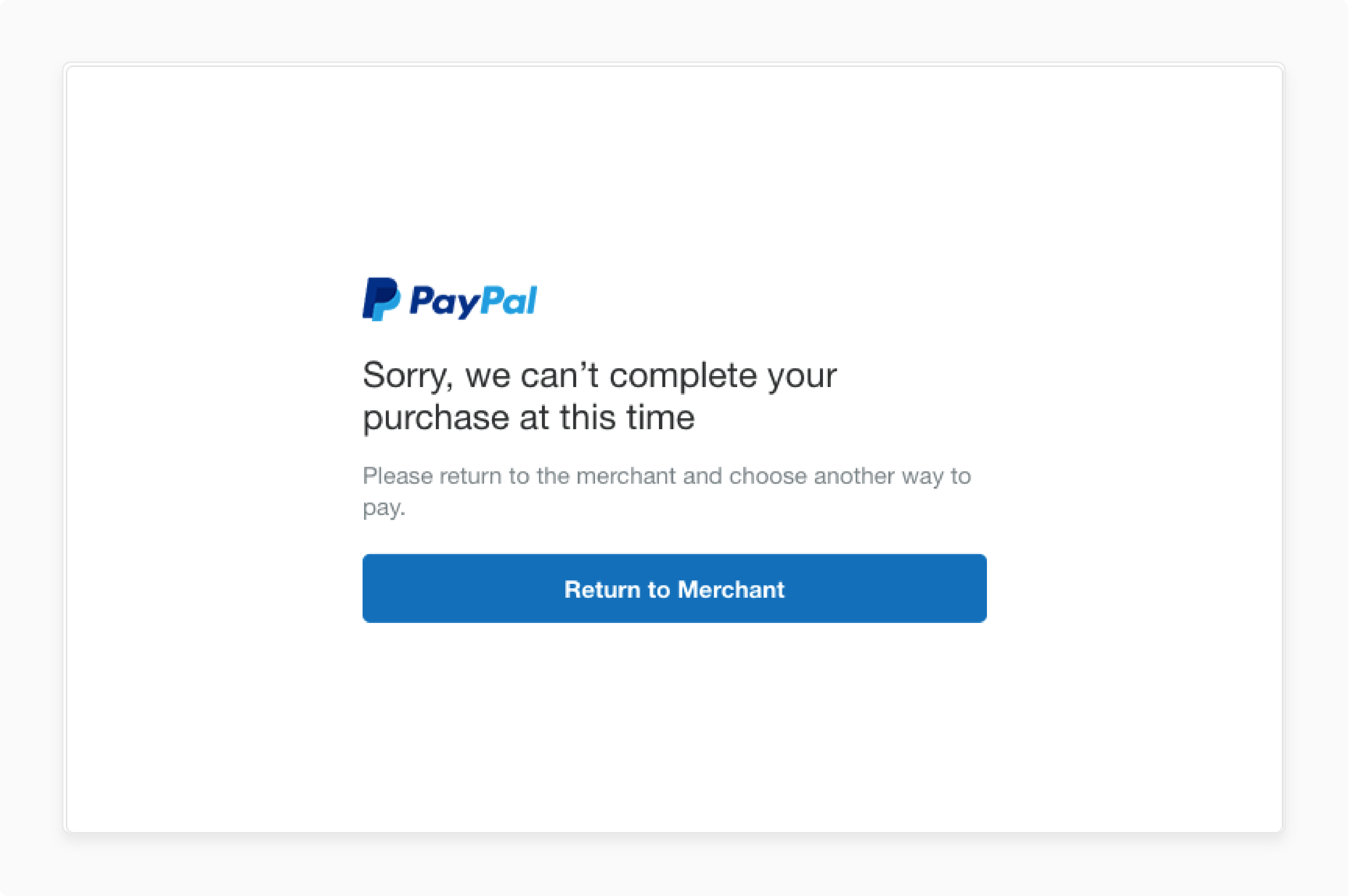
Payment declines happen often in PayPal transactions. Causes include:
-
Insufficient funds
-
Incorrect payment details
-
Fraud detection
Check the customer’s payment method for accuracy. Ensure the PayPal account has enough funds or is linked to a valid card. If fraud detection blocks the payment, resolve it through PayPal support.
2. Stripe Connection Errors
Stripe connection errors disrupt payment processing. These errors often result from:
-
Incorrect API keys
-
Outdated Stripe extensions
Verify that the API keys are correct. Update your Stripe extension to the latest version. If errors persist, check the server logs or contact Stripe support.
3. Magento Payment Gateway Timeout
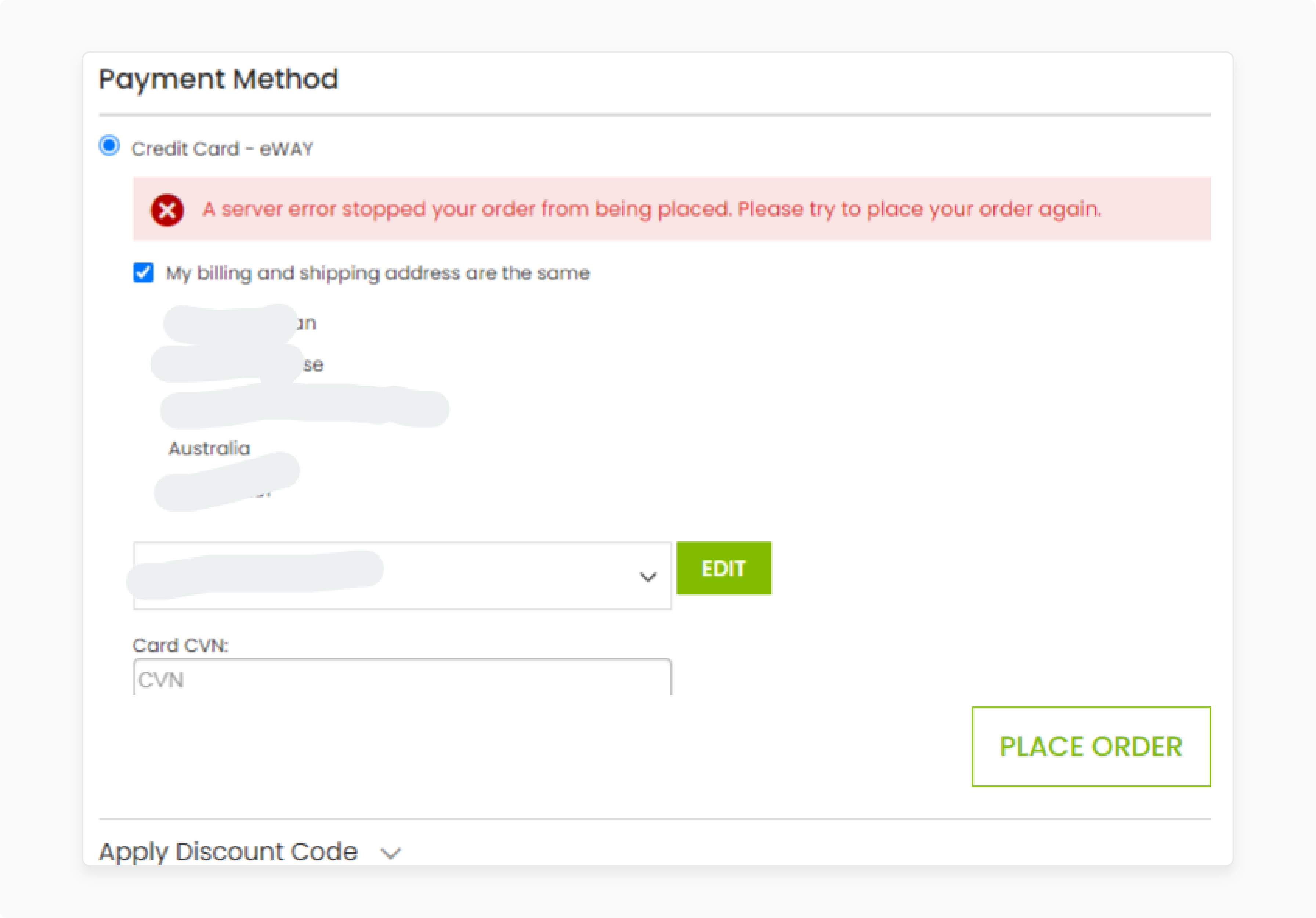
Payment gateway timeouts in Magento cause failed transactions. Slow or interrupted connections usually trigger this. Check your:
-
Internet connection
Ensure your payment gateway settings are correct. Adjust timeout settings in Magento if needed. Contact your hosting provider if the issue continues.
4. PayPal IPN (Instant Payment Notification) Not Working
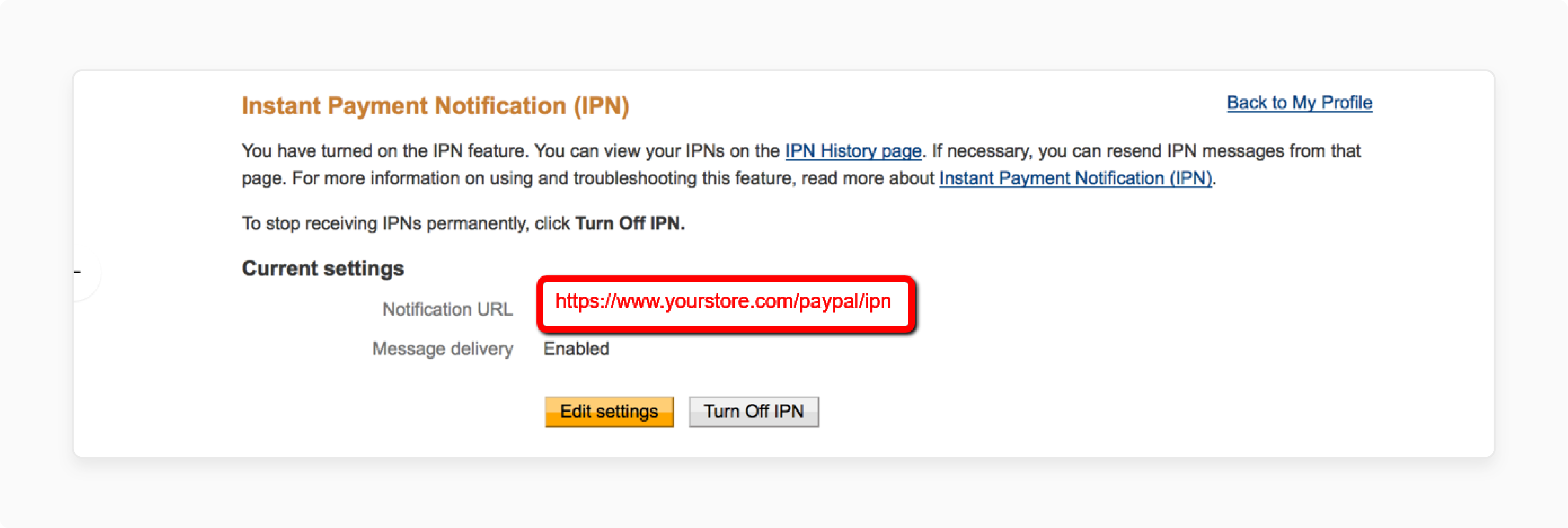
PayPal IPN failures cause order status issues in Magento. These failures are often due to:
-
Incorrect IPN settings
-
Communication problems between PayPal and Magento
Verify the IPN URL in PayPal. Check if your server can receive IPN messages. Resend the IPN manually from PayPal if necessary.
5. Stripe Webhook Failures
Stripe webhook failures block notifications from reaching Magento. Common causes include:
-
Misconfigured webhook URLs
Confirm the webhook URL is correct and accessible. Ensure your firewall does not block Stripe’s IP addresses. Review the webhook logs and retry events if needed.
6. Magento PayPal Express Checkout Issues
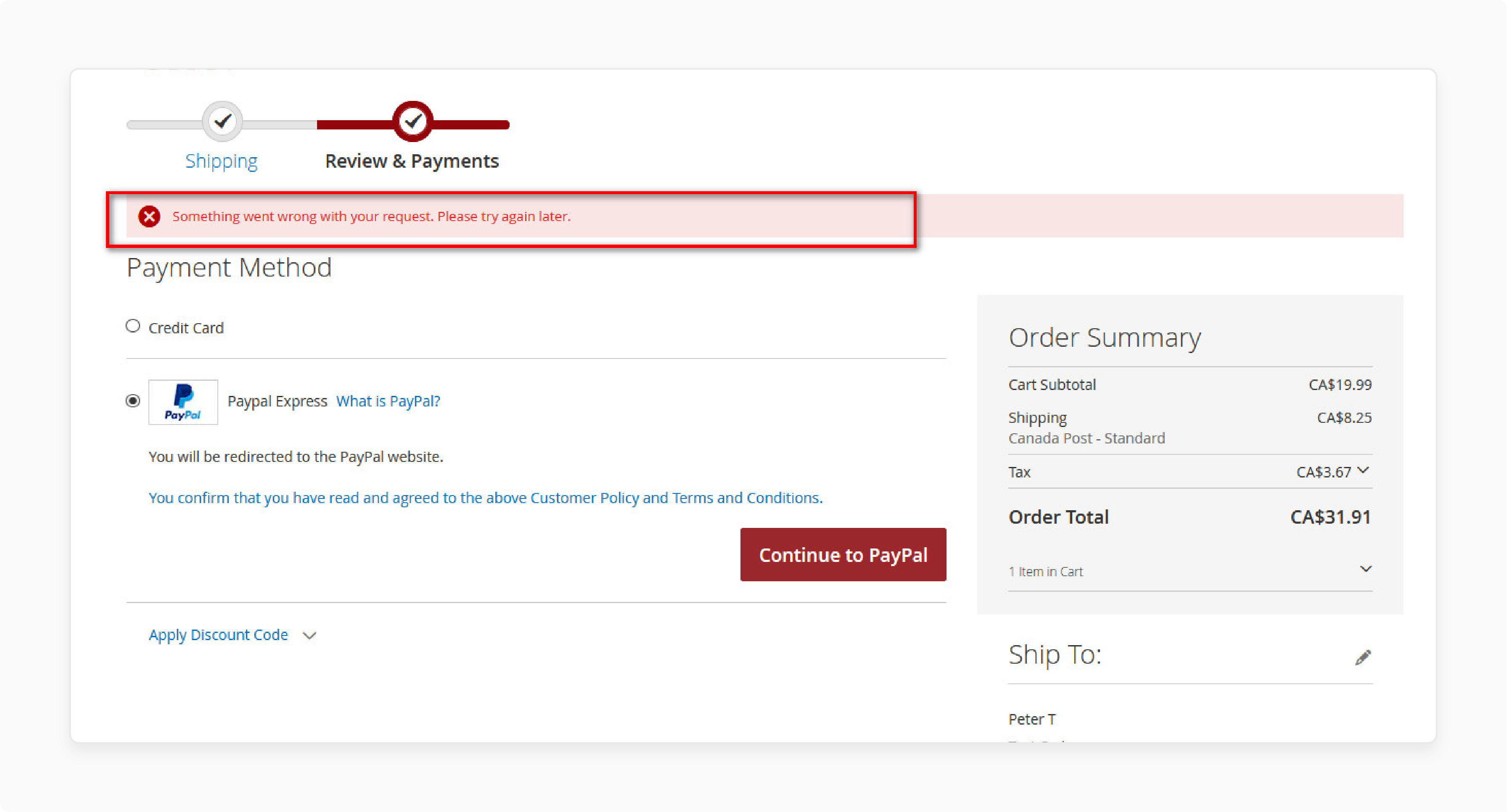
PayPal Express Checkout may fail due to:
-
Misconfiguration
-
Incorrect API credentials
-
Outdated extensions
Verify your PayPal API credentials and update them if needed. Ensure the Express Checkout option is enabled in Magento. Update the PayPal extension to prevent compatibility issues.
7. Card Payment Declines in Stripe
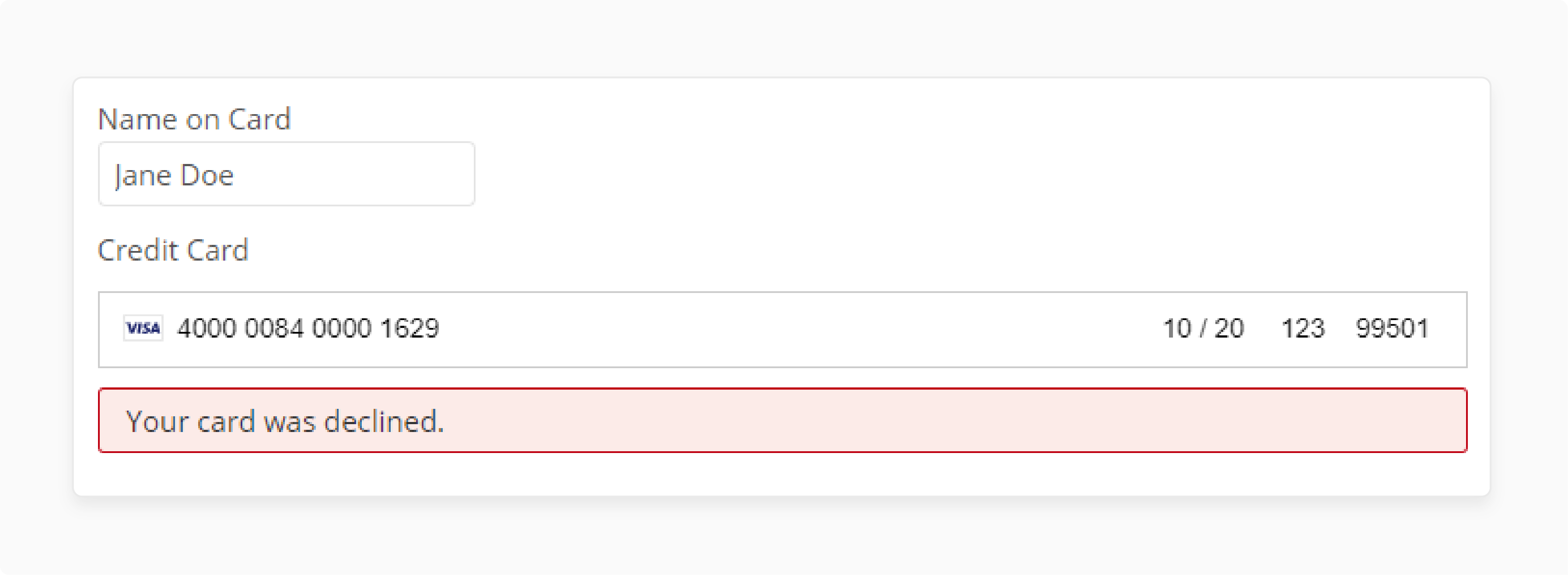
Card payment declines in Stripe happen for various reasons, such as:
-
Insufficient funds
-
Incorrect card details
-
Fraud prevention
Confirm the card details with the customer. If correct, check for fraud alerts or restrictions. Advise the customer to contact their bank if the problem persists.
8. Magento and PayPal Integration Issues
Integration issues between Magento and PayPal prevent transactions. Common causes include:
-
Incorrect API configurations
-
Outdated modules
Review the PayPal API settings in Magento. Make sure all fields are correctly filled. Update outdated PayPal modules to ensure smooth transactions.
9. Stripe Fraud Prevention Blocking Legitimate Payments
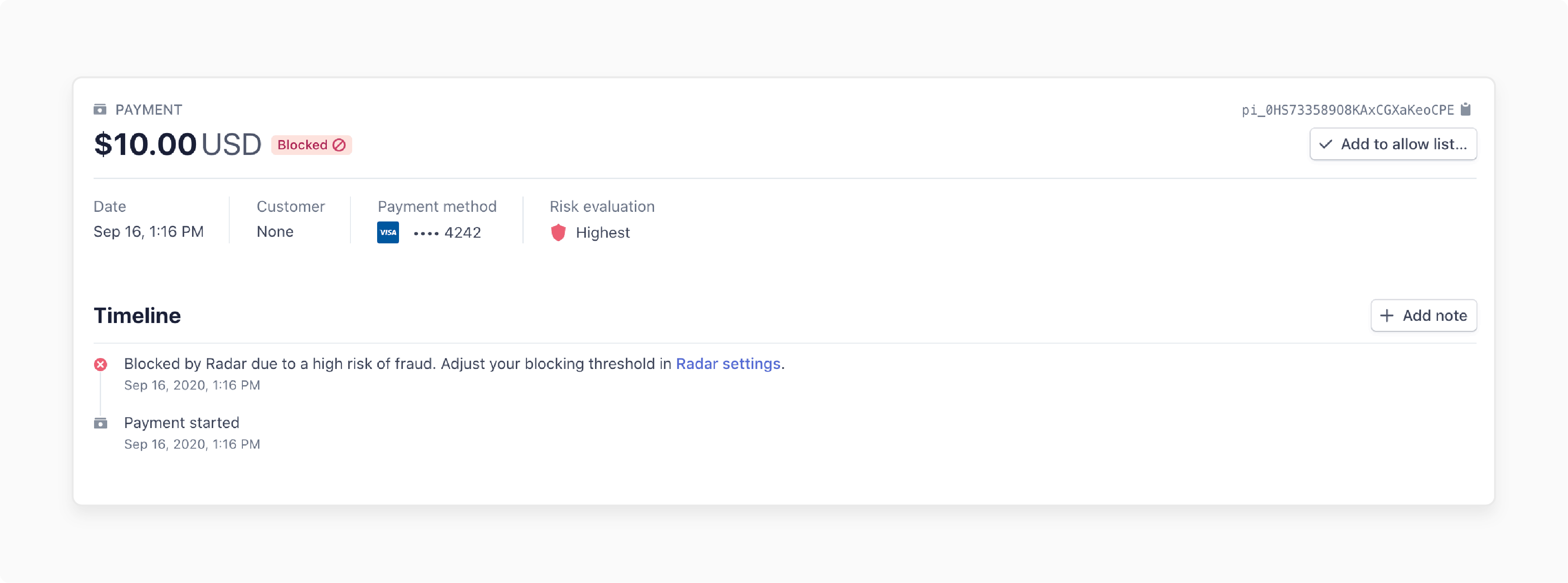
Stripe's fraud system may block legitimate payments as suspicious. Common triggers include:
-
Mismatched billing information
-
Unusual buying patterns
Review and adjust Stripe’s fraud settings. Whitelist legitimate transactions to avoid future blocks. Contact Stripe support for help fine-tuning the fraud system.
FAQs
1. What is the best ecommerce hosting solution for a small business?
The best ecommerce hosting solution for a small business depends on its size and budget. Consider shared hosting for lower costs or VPS hosting for more control. Managed hosting offers hassle-free maintenance. Always ensure it includes a free SSL certificate for security.
2. How do I choose the right hosting service for my ecommerce store?
To choose the right hosting service, evaluate your ecommerce site needs. Consider factors like page load speed, reliability, and support. Cloud hosting is ideal for scalability, while shared hosting is more affordable. Look for ecommerce hosting plans that offer flexible hosting plans.
3. What are the benefits of managed hosting for an ecommerce business?
Managed hosting simplifies server management for ecommerce businesses. It includes regular updates, security patches, and backups. It allows online business owners to focus on growth rather than technical tasks. It also improves the performance of your ecommerce hosting platform.
4. Should I use WooCommerce hosting or Shopify for my ecommerce store?
Both WooCommerce hosting and Shopify offer great options for ecommerce stores. Shopify provides an all-in-one solution, while WooCommerce allows for more customization with WordPress hosting. Choose based on your ecommerce solution needs and technical expertise. Managed Magento hosting is considered best for e-commerce stores of all sizes.
5. What features should I look for in the best ecommerce hosting?
When choosing the best e-commerce hosting plan, prioritize speed, security, and scalability. Look for providers offering cloud hosting, VPS hosting, and managed hosting options. Ensure the hosting company provides a free SSL certificate and 24/7 support. These features enhance the performance of your ecommerce business.
6. What is the difference between shared hosting and VPS hosting for an ecommerce site?
Shared hosting means your ecommerce site shares server resources with others, which can impact performance. VPS hosting offers dedicated resources, providing better speed and reliability. Online business owners often choose VPS website hosts as their stores grow for better control.
7. Can I use a website builder with ecommerce hosting providers like InMotion Hosting?
Yes, many ecommerce hosting providers like MGT-Commerce and InMotion Hosting offer website builders. These tools make it easy to design your ecommerce store without coding. Look for web hosting services that support integrations with popular ecommerce software like Magento, Shopify, or WordPress.
Summary
An ecommerce web hosting merchant account secures online payments. It protects customer data and speeds up cash flow.
-
Secure Payments: Protects transactions with encryption and fraud tools.
-
Improved Cash Flow: Ensures faster access to funds.
-
Customer Trust: Builds loyalty through secure transactions.
-
Recurring Payments: Simplifies subscription management.
-
Global Reach: Accepts payments in different currencies.
Consider managed Magento hosting to accurately setup a merchant account for your e-store.








